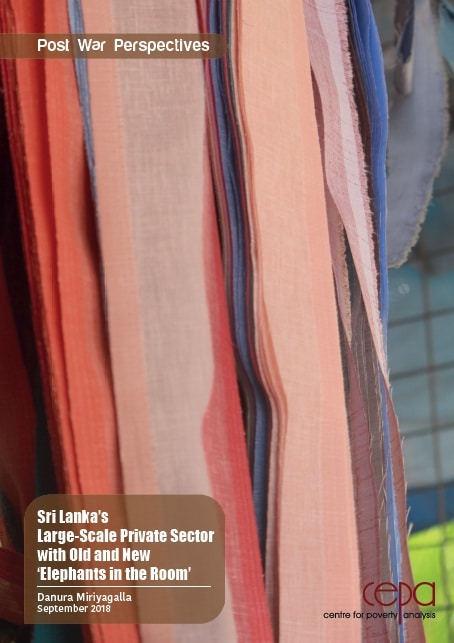Sri Lanka’s Large-Scale Private Sector with Old and New Elephants in the Room

Description
Successive governments in Sri Lanka were known for their omnipresence within the economic and business landscape. The relationship between governments and certain sections of the large private sector appeared as being necessary associations of existence with an expectation that the private sector would become the country’s engine of growth. However, since the dawn of liberalisation, contrary to expectations, the private sector may have neither had an opportunity nor ability to ‘lead’ in the overall development of the economy. This report fills an important gap in knowledge on key factors that aÂected investment and business growth among the large private sector in Colombo during the period of 2015-16. It also highlights the challenges faced by Sri Lanka’s large private sector in the war economy as well as during the transition to a peace economy, and makes key recommendations to support more investment. The Centre for Poverty Analysis (CEPA) is an independent Sri Lankan think-tank promoting a better understanding of poverty-related development issues. CEPA believes that poverty is an injustice that should be overcome and that overcoming poverty involves changing policies and practices nationally and internationally as well as working with people in poverty. CEPA strives to contribute to influencing poverty-related development policy, at national, regional, sectoral, programme and project levels.